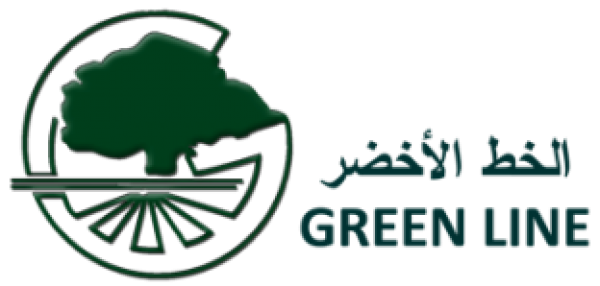Green Line Association-A pioneer in green advocacy
Establishment
The association was established in 1991 when a group of professionals from the American University of Beirut (AUB) and their friends decided to translate their concern about the post-war devastated cultural, human and natural environment into an organized action. Thus, Green Line emerged as an independent non-partisan non-governmental organization concerned with environmental affairs and aiming to expose threats to the environment, raise environmental awareness and contribute towards a scientific framework for a sustainable environmental management policy. The association brings together people worried about conserving the past and the present and giving the future a better chance.
Activities
The activities of the association are too many to mention. The Garden Project launched in 1997, aimed to increase the green areas, by encouraging the practice of agriculture. Initially, it included 20 schools; it then expanded to comprise close to 120 both public and private schools from all over Lebanon, a number of municipalities (Kahhaleh, Baalbeck, Zahle, Abbassiyeh…), local organizations, civil society groups, institutions and ministries.
Green Line’s reforestation efforts yielded the formation of the National Reforestation Network, which included 68 NGOs and clubs that planted more than 100,000 trees across Lebanon. Reforestation projects were funded by Oxfam-UK and led to the establishment of nurseries in South Lebanon, Qoubayyat and Rmaileh.
Green Line also attended to organic farming and provided guidelines for the production, processing, labeling and marketing of organically produced foods, in a bid to promote organic agriculture and educate people about its importance.
Knowing the sensitivity of the thorny environmental issues they raised, Green Line’s lobbying group envisioned beforehand the challenges lying ahead.
The association’s action was therefore focused on awareness and outreach activities along with mobilization efforts aimed to correct the environmental policies in force and influence a change in legislation.
Green Line’s lobbyists drew attention to the sporadic quarrying practices and joined hands with late MP Wadeeh Akl to minimize the destructive implications of rampant and illegal sand and rock quarrying. Although it could not realize ultimate victory, its efforts forced the relevant authorities to put forth a master plan for quarries and abide by the administrative deadlines.
Green Line reinforced its presence as an effective environmental activist by launching a groundbreaking campaign against the extraction of sand from the beaches of Tyre. Despite the threats and challenges it received, Green Line’s activism yielded the declaration of the coast of Tyre a protected area.
Green Line protested the transfer of garbage from the Normandy landfill to Sibline and reported the case to the General Prosecutor, but no action was taken to curb the violation.
Archaeological preservation was also put on the association’s agenda and Green Line members were able to retrieve artifacts stolen from Tyre’s newly discovered Phoenician Child cemetery that were being sold on the black market. The artifacts are now exhibited in the National Museum.
Green Line’s campaigned to stop the privatization of public beaches; the association’s advocacy coupled with the protests and fury of Beirut’s residents forced the late PM Rafik Hariri to halt the project he was developing in Ramlet El-Bayda. In speaking against the flagrant and systematic seizure of public spaces, Green Line allowed the Lebanese access to their last place by the sea turning Ramlet El-Bayda into a public beach. Likewise, the association joined hands with the residents of Beirut to challenge the Daliyeh area project, denouncing the abusive practices and naming and shaming the violators and beneficiaries.
Green activists from the association petitioned and protested to preserve every inch of greenery in different areas such as Horsh Beirut and Beirut’s hippodrome.
Budget
Green Line’s annual budget stood at USD 200,000 in the late nineties and funding was provided by Oxfam. However, after the 2005 Hariri assassination and the July War and all the subsequent events, things began to go downhill and are still deteriorating to date.
Challenges
The overlap between politics and the environment coupled with the convergence of interests among powerbrokers and stakeholders and their ensuing intimidating practices seem to gravely undermine the performance of the association. Despite the vast awareness campaigns and the serious attempts made by Green Line and other green NGOs to educate people about the dangers of environmental neglect, environmental awareness and ethics still have a long way to go and a lot of work needs to be done to alter people’s perceptions of and practices towards their environment. Funds from donor agencies are now being diverted towards non-governmental purposes; this, along with lack of local financing, further complicates the challenge of environmental reform.








Leave A Comment